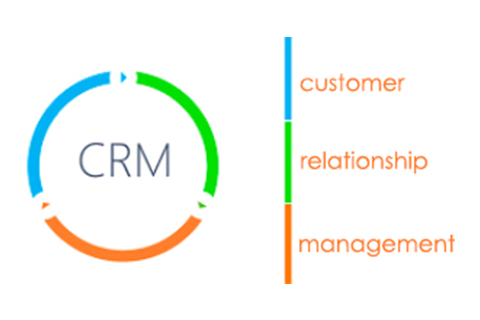CRM системы

Customer Relationship Management – управление отношениями с клиентами – это важная часть бизнеса. От степени удовлетворенности заказчиков напрямую зависит уровень продаж, а значит и прибыль компании. Контактные данные, количество ранее сделанных заказов, ответственное лицо и множество другой информации необходимо оперативно использовать при каждом новом входящем обращении. Даже у малых предприятий количество клиентов редко имеет двузначные значения, поэтому простой excel-документ плохо справится с задачей быстрого и удобного поиска данных.
Любая автоматизация предприятия имеет вполне определенную цель – увеличение дохода. Системы CRM не только не являются исключением, но и занимают лидирующее место в списке внедряемых систем, поскольку напрямую связаны с источником дохода, то есть с клиентами.
Системы управления отношениями с клиентами обеспечивают достижение следующих целей:
- контроль работы менеджеров;
- ведение клиентской базы;
- улучшение качества работы с клиентами.
Контроль работы менеджеров
Например, полезно знать, все ли лиды (потенциальные клиенты, которые каким-либо образом дали свою контактную информацию, например, оставили заявку на сайте) обрабатываются менеджерами своевременно. Также, из CRM легко получить информацию об активности каждого менеджера и отдела продаж в целом.
Ведение клиентской базы
Клиентские базы – это ценный капитал предприятия. Внимательная работа с существующими клиентами, например, своевременный обзвон, позволит совершать вторичные продажи и увеличивать выручку даже без привлечения новых клиентов.
Улучшение качества работы с клиентами
Казалось бы, поздравить постоянного клиента с днём рождения – это мелочь. Однако из таким мелочей строится отношение к компании в целом. В современном мире, когда информация в обществе распространяется мгновенно, хороший имидж компании – это важная составляющая хороших продаж.
Для того, чтобы решить, нужна ли система CRM компании, достаточно ответить только на один вопрос: связана ли деятельность компании с работой с заказчиками. Если да, то CRM не просто нужна, а жизненно необходима. Однако, в зависимости от специфики предприятия, следует выбрать подходящий тип системы управления отношениями с клиентами. CRM делятся на два типа: операционные и аналитические.
Операционные CRM
Отвечают за хранение, регистрацию и доступ к данным о контрагентах. Позволяют осуществлять планирование событий, проектов, встреч. Операционная CRM подойдёт малым и средним предприятиям с умеренным потоком клиентов.
Аналитические CRM
Включают в себя весь функционал операционных CRM, а также анализ информации о клиентах и составление отчетов. Позволяют работать с воронкой продаж, вести учет маркетинговых мероприятий и выполнять анализ эффективности продаж в различных разрезах (по продуктам, по категориям клиентов, по регионам и т. п.). Системы такого типа подойдут либо крупным компаниям, либо компаниям, в которых операции с клиентами являются массовыми.
Таким образом, при автоматизации предприятия следует уделить пристальное внимание CRM системам. Часть из них доступна как отдельные облачные сервисы, другие являются модулями информационных систем. Если же стандартный функционал не подходит под специфику работы вашего предприятия, то имеет смысл задуматься о заказной разработке CRM системы. Однако, в таком случае не стоит забывать об интеграции с имеющимися информационными системами.












